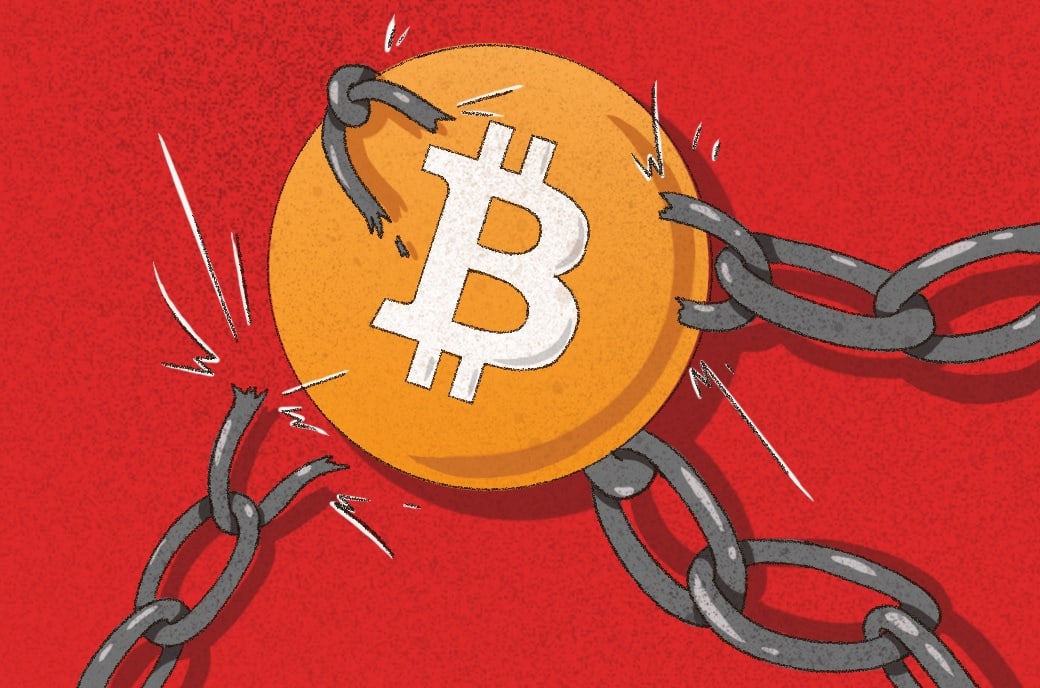2023-4-27 23:07 |
Cryptocurrencies, and particularly Bitcoin (BTC), have been central to numerous debates and discussions worldwide. As the digital currency’s popularity and value continue to grow, so do concerns about its implications for financial systems and national security.
With governments trying to regulate this new form of currency, some have even considered banning it altogether. In the United States, a key question arises. Can the RESTRICT Act be used to ban Bitcoin?
What Is the RESTRICT Act?The RESTRICT (Restricting Entrance for Strong Tactics to Repel Illicit Conduct and Terror) Act is a proposed piece of legislation before the US Senate. Its purpose is to combat money laundering, terrorist financing, and other illicit activities.
It focuses on identifying and penalizing individuals and entities engaged in such crimes. The bill aims to strengthen the country’s financial system by preventing the misuse of its institutions.
The RESTRICT Act also seeks to impose tighter rules on financial institutions, enhance the powers of law enforcement agencies, and facilitate international cooperation in combating illicit economic activities. It proposes to create new criminal offenses and impose harsher penalties for those involved in money laundering and terrorist financing.
Bitcoin and Crypto in AmericaBitcoin and other cryptocurrencies have gained real traction in America. Many businesses and individuals are embracing them as a means of payment, investment, and value storage. In fact, a recent report revealed that 67% of millennials in America view Bitcoin as a safe haven.
The country has become a hub for crypto innovation, boasting numerous startups, exchanges, and blockchain technology companies.
While the US government has not banned cryptocurrencies, it has taken a cautious approach to their regulation. Federal and state agencies have issued guidelines and rules to govern cryptocurrency-related activities, such as trading, mining, and initial coin offerings (ICOs).
In addition, the Internal Revenue Service (IRS) treats Bitcoin as property for tax purposes, while the Commodity Futures Trading Commission (CFTC) considers it a commodity.
Could the RESTRICT Act Be Applied to Bitcoin?The RESTRICT Act primarily focuses on preventing and combating illicit financial activities.
If lawmakers were to argue that BTC facilitates such activities and poses a serious risk to national security, they could potentially use the Act as a basis for banning Bitcoin. However, this would require a strong case demonstrating that Bitcoin is inherently linked to criminal activities and cannot be sufficiently regulated.
Even if the RESTRICT Act were used to ban Bitcoin, implementing such a ban would be monumental. Given the decentralized nature of BTC, enforcing a ban would be difficult, as transactions occur on a peer-to-peer basis, with no central authority to control or monitor them.
Additionally, using virtual private networks (VPNs) and other privacy-enhancing tools can make tracing and identifying users challenging.
A ban on Bitcoin could lead to a thriving black market, similar to what has occurred in countries that have attempted to prohibit cryptocurrencies. This would ultimately undermine the purpose of the RESTRICT Act, fueling more illicit activities.
The RESTRICT Act seeks to address money laundering and other financial crimes involving crypto. Implications of a BanBanning Bitcoin could have far-reaching economic consequences. The burgeoning cryptocurrency industry has attracted investment, created jobs, and spurred technological innovation.
A ban would likely result in the loss of these investments and stifle the industry’s growth. Furthermore, it could push businesses and individuals to move their operations to more crypto-friendly jurisdictions, as crypto exchanges Gemini and Coinbase have decided to do. This may lead to a brain drain and loss of tax revenue.
Coinbase CEO Brian Armstrong believes in the need for regulatory clarity for centralized players. He maintains that blockchain technology can foster consumer protection, national security, and economic growth. Still, he says, the Securities and Exchange Commission (SEC) has caused “untold harm to America with its policy of regulation by enforcement.”
Furthermore, the threat or reality of a ban on Bitcoin could also hinder the development and adoption of blockchain technology. This could affect various sectors, from finance and supply-chain management to healthcare and voting systems.
Michael Sonnenshein, CEO of Grayscale Investments, maintains that regulators make it hard for entrepreneurs to understand the difference between crypto security and a commodity. Still, regulation is not a “one-size-fits-all answer.” According to Sonnenshein, regulatory clarity is an “existential” necessity for the growth of the blockchain industry in America.
For all these reasons, the United States risks falling behind in the global race to harness the transformative power of blockchain technology. And a ban on Bitcoin could cripple the cryptocurrency industry.
The loss of such a substantial market could breed uncertainty and volatility. It may lead to reduced investor confidence and lower cryptocurrency prices.
Alternatives to a BanInstead of banning Bitcoin outright, lawmakers could consider implementing stricter regulations. A robust regulatory framework could address concerns related to money laundering, terrorist financing, and other illicit activities.
Moreover, it could include enhanced know-your-customer and anti-money laundering requirements and stricter oversight of crypto exchanges and other businesses involved in the industry.
Another option for addressing concerns around Bitcoin could be developing and issuing a government-backed digital currency. This would allow the government to maintain control over the crypto market while benefiting from the advantages of blockchain technology.
The Need for Clear RulesThe RESTRICT Act could potentially be used to ban Bitcoin in America. But doing so would likely result in numerous challenges and unintended consequences.
Instead, it may be prudent for lawmakers to consider alternatives, such as stricter regulations. The United States must balance the need to protect its financial system and national security with the benefits of blockchain technology.
The post Can the RESTRICT Act Be Used to Ban Bitcoin in America? appeared first on BeInCrypto.
origin »Bitcoin price in Telegram @btc_price_every_hour
Achain (ACT) на Currencies.ru
|
|

















